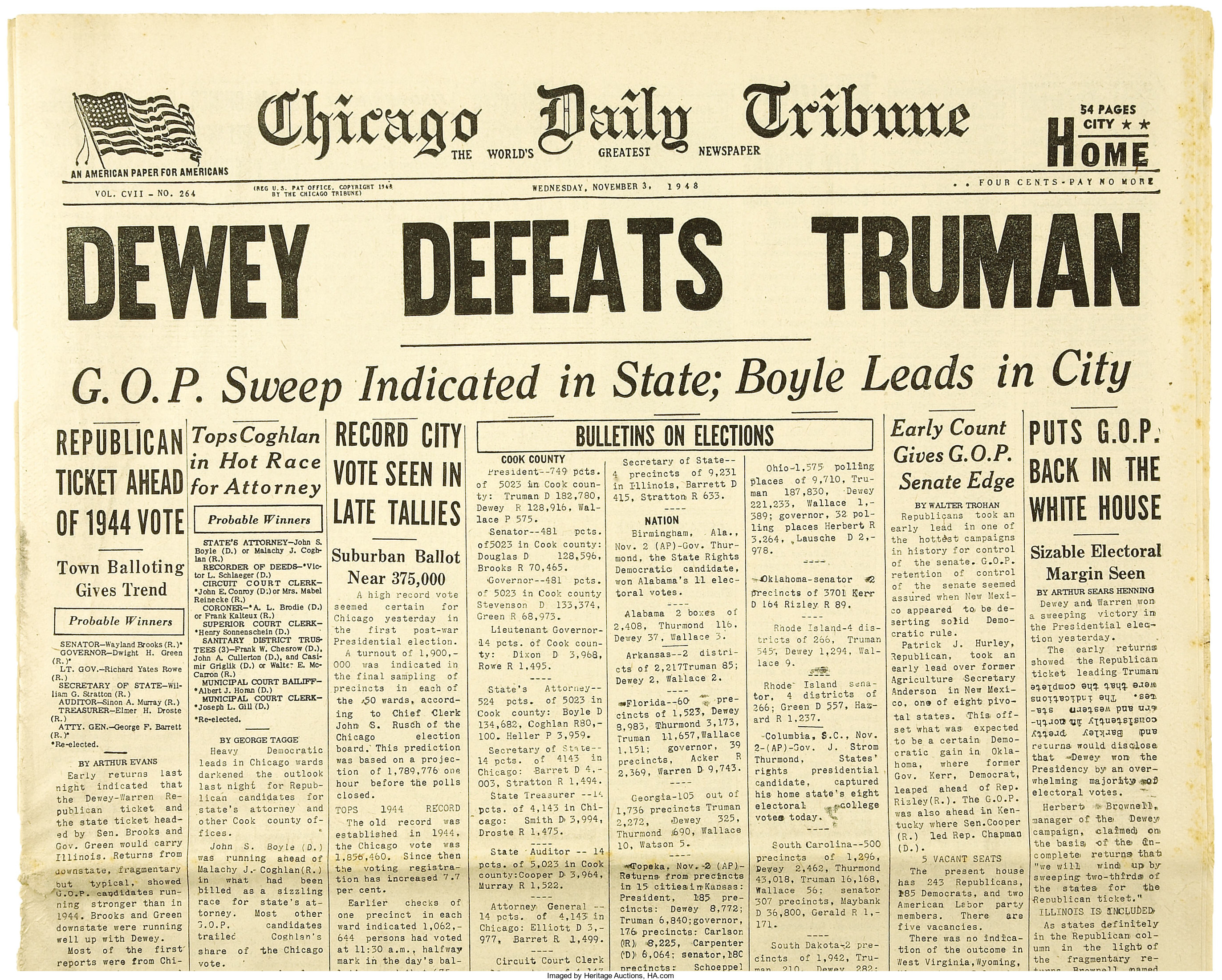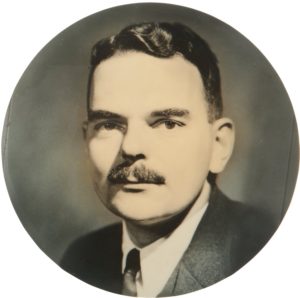
By Jim O’Neal
In 1948, Republicans selected New York Governor Thomas E. Dewey (Alice Roosevelt thought he looked like the groom on a wedding cake) to be their presidential candidate. He had lost in 1944 to FDR, but it was the closest anyone had come in four elections. Four years later, Dewey defeated a tough group of competitors that included Minnesota Governor Harold E. Stassen. In fact, Stassen was so close that Dewey challenged him to a debate just before the Oregon Republican primary.
The May 17 Dewey-Stassen debate was the first audio-recorded debate between presidential candidates in U.S. history. The debate centered primarily on the issue of criminalization of the Communist Party of the United States and was broadcast over the radio to the entire country. About 40 million people tuned in and Dewey was thought to be the winner. The real winner may have been voters, since this set a precedent that is still considered important today.
Dewey finally won the Republican nomination on the third ballot on June 24, 1948.

President Harry S. Truman had little interest in the Republicans or their convention since on the same date, June 24, the Russians decided to make a move in post-war Germany by blockading all rail, highway and water traffic in and out of Berlin. It seemed clear that Joseph Stalin was intent on forcing the Allies to withdraw from the partitioned city. Except for air, the Allied sectors were entirely cut off and nothing could come in or out of this critical German hub. About 2.5 million people were facing starvation and Truman was asked bluntly if American forces would remain in Berlin or pull out. In typical Midwest-style candor, Truman answered, “We stay in Berlin. Period.”
Four days later on June 28, while Dewey tried to rally voters to look beyond the crisis, Truman acted by ordering a full-scale airlift to Berlin. He sent to Germany two squadrons of B-29s, the giant planes associated with dropping the two atomic bombs on Japan. However, these particular planes were not equipped to carry atomic weapons, a small detail the Russians were unaware of.
Truman didn’t bother to consult with either the White House staff or any of his numerous political advisors in making the decision. He and Secretary of State General George C. Marshall were convinced that the future of Western Europe hinged on the Berlin issue and that leaving the Russians alone in Berlin could lead to a resumption of war. The numbers were sobering. The Allies had 6,500 soldiers in the city, while the Russians had 18,000. In addition, those 18,000 were backed up by 300,000 more in Germany’s Eastern Zone.
Politicians and newspapers editorialists thought it would be impossible to supply 2.5 million people with food, clothing and other essentials, especially when winter rolled around. However, by the fourth week of the airlift, American and British transports were roaring in by the hundreds each day. More pilots were being trained in Montana, flying blindfolded through extremely narrow mock routes, similar to Berlin routes. The New York Times even wrote in atypical tones, “We were proud of our Air Force during the war. We are prouder of it today.”
The effort was heroic, but it was not enough. So Truman stepped up and increased the number of planes, and 30,000 Berliners volunteered in the building of a new airfield. Voila! By October, the airlift was succeeding and Truman sent yet another 26 C-54 transports into the rotation. This increase helped guarantee supplies for the winter. Realizing their blockade ploy had failed, Stalin blinked and backed down!
“To do more would have been a direct threat to peace. To have done less would have been an abdication of our American honor and traditions,” said General Lucius Clay, the top U.S. official in occupied Germany. The 277,804 flights delivered more than 2.32 million tons of food and supplies, almost one ton for every man, woman and child in Berlin, the third-largest city in the world, behind Chicago and New York. Truman called off his airlift on May 12, 1949 … the same day Allied Powers approved the establishment of a new German Federated Republic, where the German people would rule themselves with their own government in Bonn.
They are once again the brightest country in all of Europe and dominate the E.U.
Note: I never met General Lucius Clay while he served as chairman and CEO of Continental Can Company from 1950-62 … although I received a short note from his office when I became plant manager of Continental’s South Gate, Calif., flexible packing group in 1962 at age 25. (I was told that was a record, but there is no proof.)
 Intelligent Collector blogger JIM O’NEAL is an avid collector and history buff. He is president and CEO of Frito-Lay International [retired] and earlier served as chair and CEO of PepsiCo Restaurants International [KFC Pizza Hut and Taco Bell].
Intelligent Collector blogger JIM O’NEAL is an avid collector and history buff. He is president and CEO of Frito-Lay International [retired] and earlier served as chair and CEO of PepsiCo Restaurants International [KFC Pizza Hut and Taco Bell].
